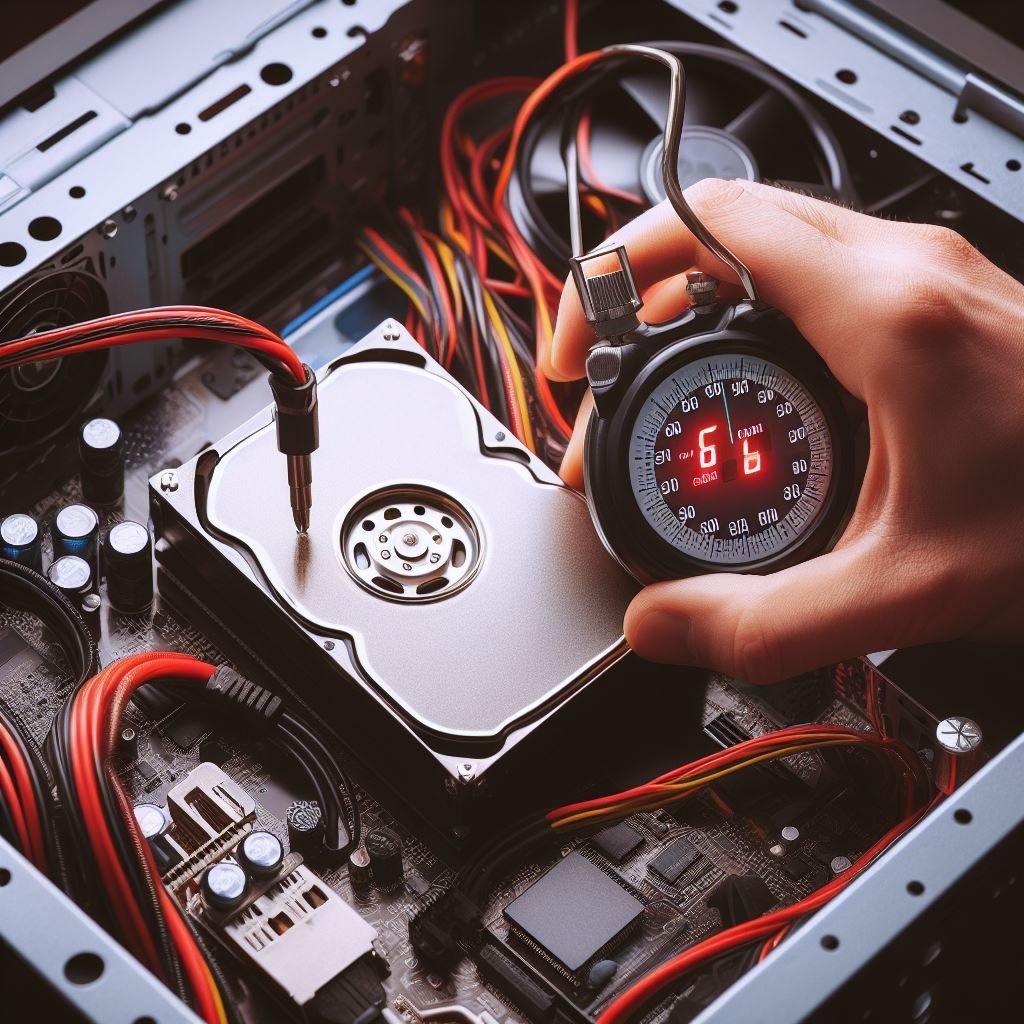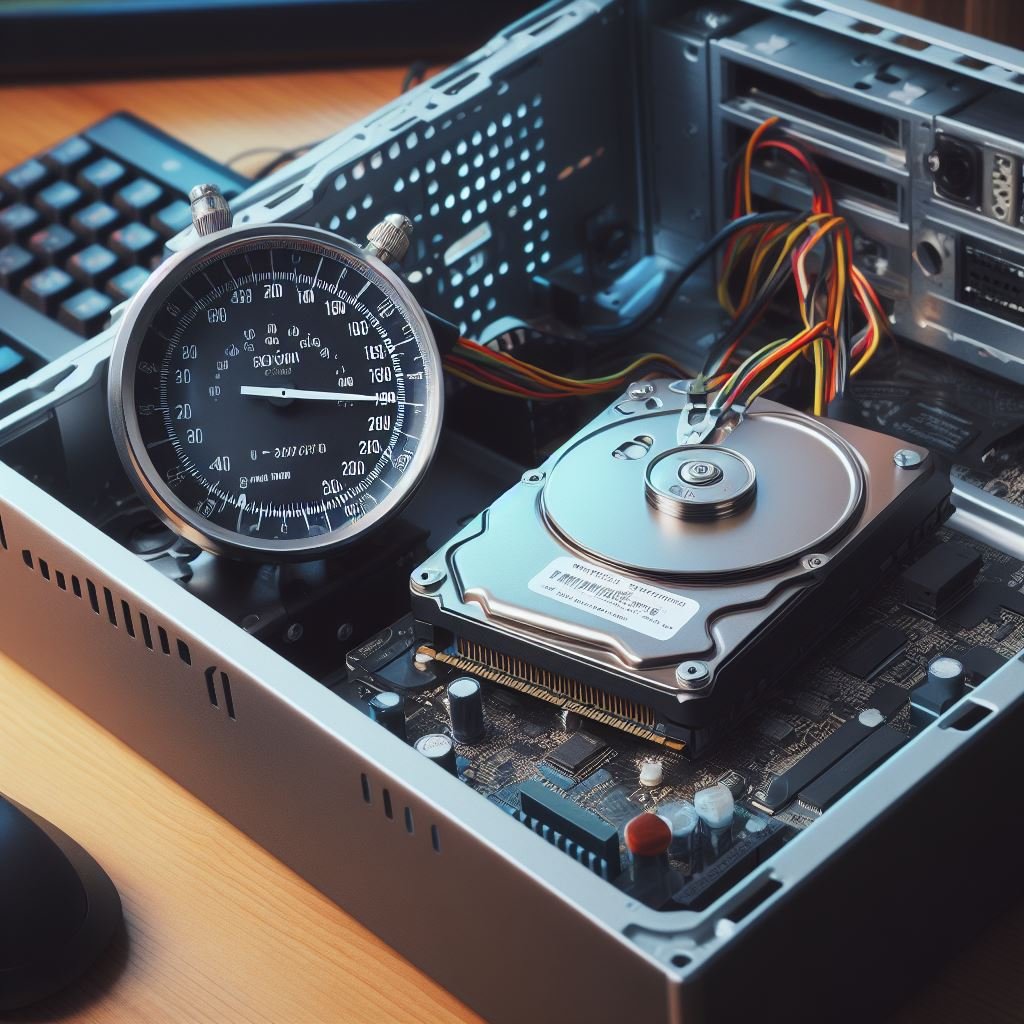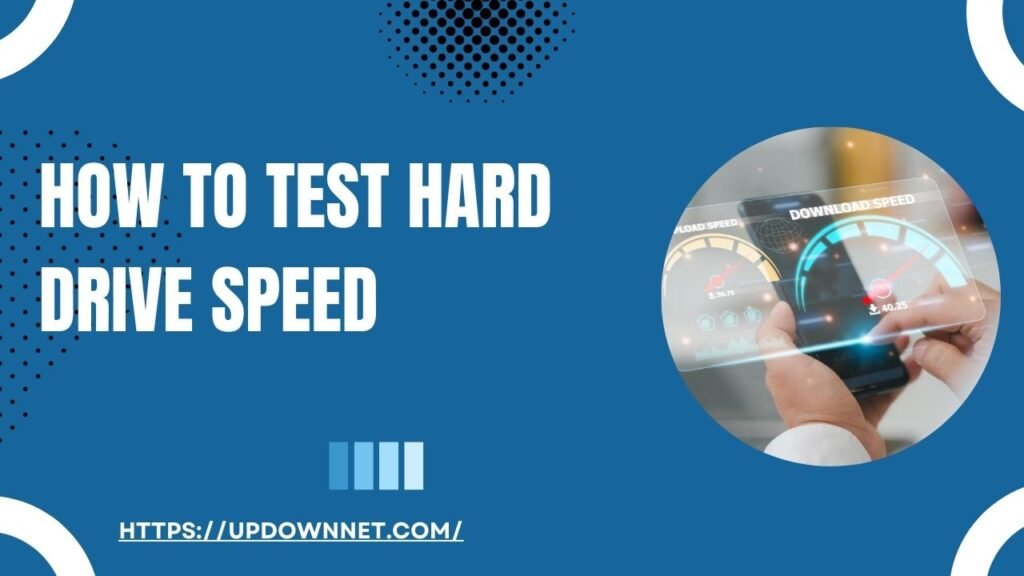We learn about how to test hard drive speed. Tips for Speed Testing Your Hard Drive! Discover the secrets to checking the speed of your hard drive and optimizing the performance of your computer.
Introduction
Testing your hard drive speed can assist you in identifying bottlenecks in your system, which can assist you in making informed decisions regarding upgrades or optimizations. It is essential that you make sure your hard drive is operating at its optimum level, regardless of whether it is a traditional HDD (Hard Disk Drive) or a solid-state drive (SSD).

Why Test Hard Drive Speed?
Here is a brief explanation of why hard drive speed is important before we take a look at the methods:
1. Performance Optimization
Testing your hard drive provides the opportunity to determine whether it performs according to its specifications. Optimizing its performance is an option if it is not.
2. Upgrade Decisions
Your hard drive’s performance gives you some insight into which replacement you should choose if you’re thinking about upgrading.
3. Identifying Issues
A slow data transfer rate or a long loading time may indicate that there is an issue with your hard drive that needs to be addressed.
How To Test Hard Drive Speed? A step-by-step guide
The following steps will help you determine the speed of your hard drive:
Step: 1 Select the Drive
You should launch the testing tool and select the hard drive you wish to test. A drive on which your operating system and important files are stored needs to be tested.
Step: 2 Configure Test Parameters
The test parameters, such as the size of the test file and the number of tests, should be configured. It is possible that these settings will vary depending on the testing tool you are using.
Step: 3 Run the Test
The test can be initiated by clicking on the “Start” button. The tool measures the reading and writing speeds of your hard drive and provides detailed results.
Step: 4 Analyze the Results
You should review the results once the test has been completed, which typically include sequential and random read/write speeds. The user should pay particular attention to factors such as MB/s (megabytes per second) and IOPS (input/output operations per second).
Step: 5 Interpret the Results
The speed of your hard drive should be compared with industry standards or the specifications provided by the manufacturer. The performance of the system will be evaluated in relation to its potential based on this information.
Final Step: Take Action
It is possible to make informed decisions based on the results of the test. You may want to consider upgrading your hard drive to a faster drive or optimizing your computer’s performance if your hard drive is not performing properly.
Tips for Improving Hard Drive Speed
You can enhance the performance of your hard drive by taking the following steps in addition to testing its speed:
1. Regularly Defragment Your Drive
The process of defragmenting a hard drive can greatly improve the read and write speeds of the drive by organizing the data more efficiently.
2. Upgrade to an SSD
You should consider upgrading your hard disk drive to a solid-state drive (SSD) if you are still using a conventional hard disk drive (HDD). An SSD provides significantly faster performance than a traditional hard drive.

3. Free Up Storage Space
You should ensure that your hard drive has a sufficient amount of free space. The performance of a cluttered drive can be adversely affected.
4. Keep Your System Updated
You should update your operating system and device drivers regularly in order to achieve optimal performance and compatibility.
5. Use Disk Cleanup Tools
You should utilize the built-in disk cleanup tools to remove unnecessary files and temporary files from your computer.
Why should I test my hard drive speed?
A test of the speed of your hard drive is an important step in ensuring that the storage device is performing at its optimum level.
This will enable you to identify potential issues, assist in deciding whether or not your system requires an upgrade, and ensure that it operates efficiently.
What do hard drive speeds mean?
A hard drive’s performance can be determined primarily by the speed at which data can be transferred from the spinning media (platters) to the computer through the read/write head.
The term “data throughput” refers to the rate at which data is sent and received. This speed is typically measured in gigabytes (or gigabits) per second.
Are there built-in tools to test hard drive speed?
A number of operating systems, such as Windows, offer built-in tools that can be used to test hard drive performance. These tools can provide you with basic information about the performance of the storage device.
How often should I test my hard drive speed?
It is recommended that you test the hard drive speed on a regular basis, particularly if you have significantly changed your system configuration or upgraded your device. Regular testing allows you to monitor the performance of your device over the course of time.
Conclusion
The speed of your hard drive is essential to the smooth and efficient operation of your system. The ability to evaluate the performance of your hard drive empowers you to make informed decisions regarding upgrades, optimizations, and troubleshooting, regardless of whether you are a casual user or a professional. Therefore, test the speed of your hard drive and enjoy a more responsive and fast computing experience.



